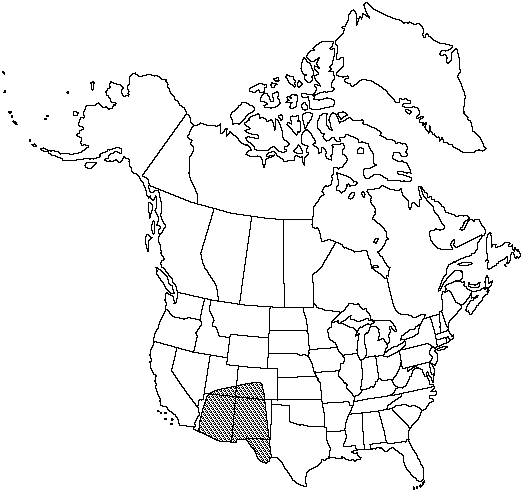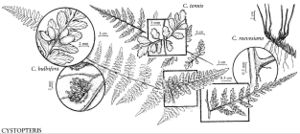Difference between revisions of "Cystopteris reevesiana"
Amer. Fern J. 71: 92. 1981.
FNA>Volume Importer |
imported>Volume Importer |
||
| (3 intermediate revisions by 2 users not shown) | |||
| Line 8: | Line 8: | ||
}} | }} | ||
|common_names=Southwestern brittle fern | |common_names=Southwestern brittle fern | ||
| + | |special_status={{Treatment/ID/Special_status | ||
| + | |code=F | ||
| + | |label=Illustrated | ||
| + | }} | ||
|basionyms= | |basionyms= | ||
|synonyms={{Treatment/ID/Synonym | |synonyms={{Treatment/ID/Synonym | ||
|name=Cystopteris fragilis subsp. tenuifolia | |name=Cystopteris fragilis subsp. tenuifolia | ||
|authority=Clute | |authority=Clute | ||
| + | |rank=subspecies | ||
}} | }} | ||
|hierarchy=Dryopteridaceae;Cystopteris;Cystopteris reevesiana | |hierarchy=Dryopteridaceae;Cystopteris;Cystopteris reevesiana | ||
| Line 36: | Line 41: | ||
-->{{#Taxon: | -->{{#Taxon: | ||
name=Cystopteris reevesiana | name=Cystopteris reevesiana | ||
| − | |||
|authority=Lellinger | |authority=Lellinger | ||
|rank=species | |rank=species | ||
| Line 50: | Line 54: | ||
|publication title=Amer. Fern J. | |publication title=Amer. Fern J. | ||
|publication year=1981 | |publication year=1981 | ||
| − | |special status= | + | |special status=Illustrated |
| − | |source xml=https:// | + | |source xml=https://bitbucket.org/aafc-mbb/fna-data-curation/src/2e0870ddd59836b60bcf96646a41e87ea5a5943a/coarse_grained_fna_xml/V2/V2_369.xml |
|genus=Cystopteris | |genus=Cystopteris | ||
|species=Cystopteris reevesiana | |species=Cystopteris reevesiana | ||
Latest revision as of 20:23, 5 November 2020
Stems creeping, not cordlike, internodes usually long, with scattered persistent petiole bases, hairs absent; scales tan to brown, ovate to lanceolate, radial walls thin, luminae tan. Leaves monomorphic, clustered at stem apex, to 45 cm, bearing sori throughout year. Petiole highly variable in color, from uniformly dark purple to uniformly straw-colored, but mostly dark purple at base, grading to straw-colored at junction with blade, shorter than blade, base sparsely scaly. Blade ovate to elliptic, 2–3-pinnate, widest at or just below middle, apex short-attenuate; rachis and costae lacking gland-tipped hairs or bulblets; axils of pinnae with occasional multicellular, gland-tipped hairs. Pinnae usually perpendicular to rachis, not curving toward blade apex, margins dentate to crenate; proximal pinnae pinnate-pinnatifid to 2-pinnate, ± equilateral, basiscopic pinnules not enlarged; basal basiscopic pinnules mostly short-stalked, base truncate to obtuse, distal pinnae deltate to ovate. Veins directed into teeth and notches. Indusia cup-shaped to lanceolate, gland-tipped hairs absent. Spores spiny, usually averaging 33–41 µm. 2n = 84.
Phenology: Sporulating summer–fall.
Habitat: Terrestrial or on rock on variety of substrates
Elevation: 1500–4000 m
Distribution

Ariz., Colo., N.Mex., Tex., Utah, Mexico.
Discussion
The finely dissected leaves, dark petioles, creeping stems, smaller spores, and terrestrial habit distinguish Cystopteris reevesiana from C. fragilis in the southwest. On rock and at high elevations, however, C. reevesiana can have stems with short internodes and leaves that are reduced in size and dissection (resembling C. fragilis). In southern Colorado, the two species are sympatric in some areas and form triploid hybrids. Cystopteris reevesiana and C. bulbifera are the diploid progenitors of C. utahensis, which occasionally crosses with C. reevesiana to produce sterile triploid hybrids of intermediate morphology.
Selected References
None.
